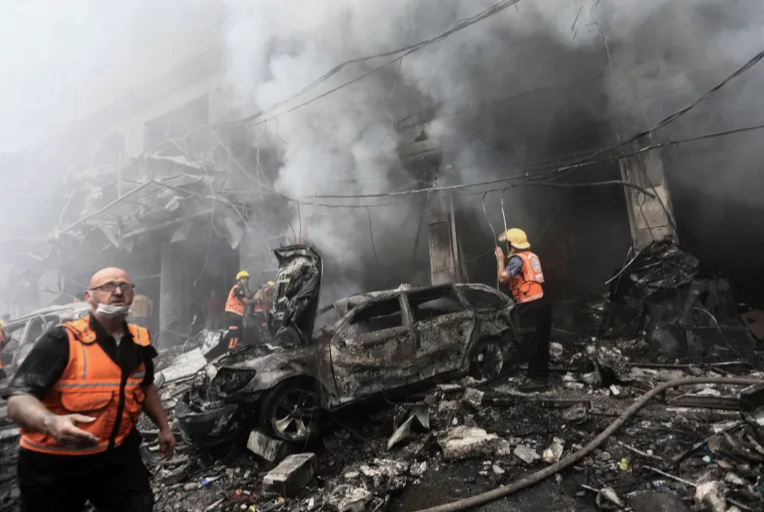
Gaza City, October 9 (RHC)-- Plumes of smoke are springing up frequently as the Israeli bombardment of the Gaza Strip entered a third day after Hamas launched a surprise attack on Israel. In the enclave – blockaded by land, air and sea – a labyrinth of tunnels is Gaza’s lifeline, bringing in everything from food and weapons to fuel.
The tunnels are also Hamas’s outposts, acting as storage and essential portals for the Palestinian armed group. At present, there are unverified reports that the Israeli military has targeted the tunnels in northwestern Gaza by deploying a powerful type of bomb known as bunker busters.
Bunker busters are “quite powerful but horrible pieces of ammunition”, Yossi Mekelberg, an expert on Israel at the London-based think tank Chatham House, told Al Jazeera. The bombs burrow deep into the ground before detonating and are capable of destroying buried, hardened targets.
The weapons, also known as ground penetration munitions, fall roughly into two broad categories. The first kind has a reinforced nose so the bomb itself survives impact. The weight gives it the momentum to bury itself deep into a target, and a delayed fuse allows it to penetrate the ground or structure before detonating.
The second kind carries two charges, or bombs, on it. The first charge is small and used to open a hole in its target, allowing the rest of the bomb or missile to pass through intact. The main charge then detonates inside, destroying everything within it.
Bunker busters were first used in World War II to destroy German underground rocket factories. Ever since there have been bunkers, there have been weapons made to “bust” or destroy them, especially from the air.
“Explosives have been used against tunnels for over a century, and the bunker busters have been used since [the] Vietnam [War],” Patrick Bury, a senior lecturer specialising in warfare and counterterrorism at Bath University, told Al Jazeera.
Israel’s air force has a focus on attacking and destroying underground tunnels and uranium enrichment facilities in Iran, and it has a wide range of increasingly sophisticated munitions at its disposal. They are made in the United States and domestically.
In 2021, Israel requested the newer GBU-72 model from the US, a deal that has yet to go through. The GBU-72 is the most advanced bunker buster and is able to penetrate 30m (100ft) of earth or 6m (20ft) of concrete and obliterate anything nearby and causing a shockwave that is likely to trigger cave-ins of subterranean structures farther away than the intended target.
Israel’s reported use of these weapons in the latest fighting are an indication of its military targeting Hamas positions underground, Bury said.
According to Mekelberg, during the 2014 Gaza War, Israeli troops were trapped and killed in tunnels while trying to target Hamas. The use of the bunker busters, therefore, allows the Israeli army to attack Hamas from a distance without risking their own forces, he explained.
Israel will likely continue to use the bombs because Hamas knows the network of tunnels best, better than Israeli forces could hope to ever navigate them themselves, Mekelberg added.
Ground penetration munitions are not only effective against tunnel complexes and underground factories but also in demolishing high buildings and towers. The bomb can enter the top of the building and penetrate all the way to the foundation, collapsing the entire building rather than blowing it up. As the war intensifies, Israeli commanders “will use whatever they can” to wage an assault against Hamas, Mekelberg said.
Eitan Shamir, the director of the Begin-Sadat Center for Strategic Studies and associate professor of political science at Bar Ilan University, also weighed in on Israel’s possible use of the weapons. “I can only hope they have it and that they are using it,” Shamir told Al Jazeera.
All these weapons are only as good as the intelligence guiding them. When using them in urban, built-up areas, the potential for mass civilian casualties is extremely high. According to the Geneva Conventions, the heavy-duty ammunition can only be used in “extreme circumstances of self-defence” and is prohibited for use in areas of high civilian populations.
However, Israel is likely unconcerned about collateral damage, according to Bury. “Israel has them and will use them. I don’t think they really care that much about collateral damage at the moment,” he said.

